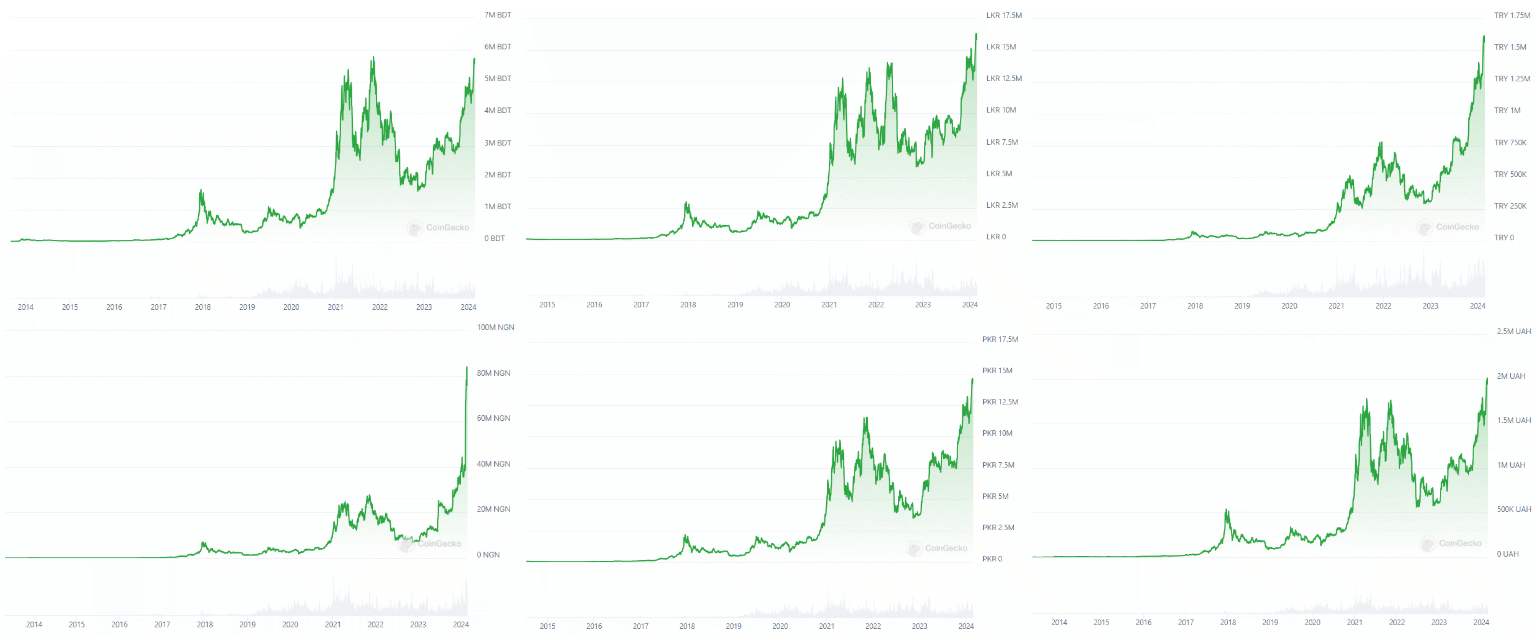The price of Bitcoin has rallied significantly over the past year. However, it still has a long way to go before it reaches its all-time high. This is particularly evident when measured against the reserve currency of the West - the US dollar. However, when measured against the local currencies of various countries, new all-time highs are being reached on a daily basis.
Western countries typically measure the price of Bitcoin in US dollars. While some exchanges offer trading pairs for Swiss francs, euros and other local currencies, the vast majority of Europeans still track the price in the "world's reserve currency". The situation is different in countries with more unstable monetary policies. An annual inflation rate of 8% in the EU is considered a record high, while people in many countries are struggling with rates ten times higher. This makes Bitcoin an attractive store of value, as evidenced by its performance against local currencies.
All-time high in nine local currencies
Research by Crypto Valley Journal shows that Bitcoin has hit all-time highs in at least nine local currencies. Among the countries represented are the usual suspects. Bitcoin holders in Argentina, Nigeria, Pakistan, Venezuela and Turkey are already seeing all-time highs in their holdings against the local currency. But the Bangladeshi Taka, South African Rand, Sri Lankan Rupee and Ukrainian Hryvnia have also depreciated significantly against the cryptocurrency.
Bitcoin price compared to national currencies / Source: CVJ.CH, CoinGecko
In the West, it is common to have more than one bank account, and access to foreign exchange markets is regulated. However, people in countries with failed monetary policies rarely enjoy this privilege. Frozen bank accounts, confiscations, and blocked capital markets force citizens into depreciating currencies. Bitcoin can provide a refuge as a cross-border, permissionless alternative, as the price charts above illustrate.
Speculation or lifeline?
As a result, the discussion of Bitcoin's utility varies widely around the world. European economists such as EZB Director General Ulrich Bindseil dismiss the value of the cryptocurrency altogether, labeling Bitcoin as nothing more than a speculative vehicle and a massive bubble. Such opinions may come from individuals who have unrestricted access to the financial infrastructure. However, in countries with an annual inflation rate of 211.4% (Argentina, 2023), a different perspective emerges.
Bitcoin's pseudonymous founder, Satoshi Nakamoto, endowed it with crucial characteristics as a store of value. The blockchain currency has a fixed cap of 21 million coins. There will never be more Bitcoins, and no central bank has a "money printing press". In addition, the annual number of newly created Bitcoins is programmatically predetermined. Every year, this number decreases (Bitcoin halving). In addition, mining new coins requires an investment. Thus, Bitcoin combines the inflation-resistant properties of physical gold with the technological advantages of a digital currency (divisibility, speed, and portability).









